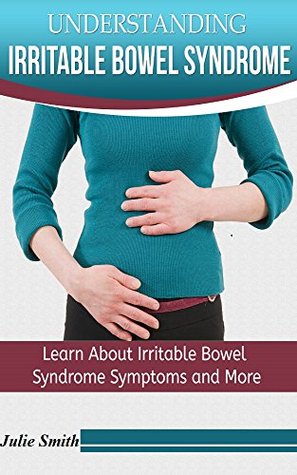Read Understanding Irritable Bowel Syndrome: Learn About Irritable Bowel Syndrome Symptoms and More - Ebook Charter file in ePub
Related searches:
Understanding Irritable Bowel Syndrome And How To Treat It
Understanding Irritable Bowel Syndrome: Learn About Irritable Bowel Syndrome Symptoms and More
Understanding Irritable Bowel Syndrome and Gastrointestinal
Understanding and dealing with irritable bowel syndrome
Understanding and Managing Pain in IBS
IBS: Symptoms, Causes, Diagnosis, Triggers, and Treatment
Understanding symptom burden and attitudes to irritable bowel
3015 1324 3801 2028 474 784 2047 1570 4405 1627 1050 640 2269 799 4133 3358 349 3487 3510 3145 1533
What is irritable bowel syndrome with constipation (ibs-c)? irritable bowel syndrome (ibs) is a common digestive disorder affecting 7-21% of the general population. Symptoms include frequent abdominal pain, bloating or discomfort, and changes in the appearance or frequency of bowel movements.
Jul 12, 2018 irritable bowel syndrome, or ibs, is a disorder that occurs in the large intestine.
Mar 31, 2021 ibs is a chronic, often debilitating, functional gastrointestinal (gi) disorder with symptoms that include abdominal pain, bloating, and altered bowel.
Irritable bowel syndrome (ibs) affects up to 10–15% of adults. Although ibs is not associated with an increased risk for life-threatening illness, it is associated with a significant health care and economic burden.
Aug 31, 2020 irritable bowel syndrome (ibs) is a chronic condition of the digestive system. Its primary symptoms are abdominal pain and changes in bowel.
Sep 24, 2020 irritable bowel syndrome, or ibs, causes uncomfortable abdominal symptoms such as diarrhea and constipation.
The ens may trigger big emotional shifts experienced by people coping with irritable bowel syndrome (ibs) and functional bowel problems such as constipation, diarrhea, bloating, pain and stomach upset. “for decades, researchers and doctors thought that anxiety and depression contributed to these problems.
Irritable bowel syndrome with constipation (ibs-c) is a chronic gastrointestinal (gi) disorder that causes frequent bloating, abdominal pain, and infrequent stools that are also hard to pass.
Learn about irritable bowel syndrome with diarrhea (ibs-d) with ibsdtakesguts. Understand symptoms, causes, and treatment options for this gastrointestinal disorder.
Dec 18, 2019 what is irritable bowel syndrome with constipation (ibs-c)? watch this animation to learn about symptoms, causes, and working with your.
Irritable bowel syndrome (ibs) is a disruption of the intestinal tract. Its symptoms include abdominal pain, bloating and abnormal bowel movements.
Irritable bowel syndrome while there is no test that can directly diagnose ibs, research is providing more and more understanding to the syndrome each year.
Aug 3, 2012 ibs is a chronic condition affecting your large intestine. The large intestine, also called the colon, absorbs water and nutrients from partially.
Pain, by definition, is the dominant symptom experienced by patients with irritable bowel syndrome (ibs). Three out of 4 people with ibs report continuous or frequent abdominal pain, with pain the primary factor that makes their ibs severe.
Irritable bowel syndrome may be due to an overgrowth of bacteria in the small intestine or nerve problems. Cramping, abdominal pain, bloating, diarrhea, and constipation are tough to handle at any time. But if a combination of these symptoms occurs over three or more months, you may have a condition called irritable bowel syndrome (ibs).
Understanding irritable bowel syndrome what is irritable bowel syndrome (ibs)? irritable bowel syndrome (ibs) is a chronic disorder in which the intestines do not work normally. Other names for ibs are spastic colon or functional bowel disease.
But, the important thing to understand is that the root of the problem often isn't here (abdomen), its here (head).
Ibs is a functional disorder of the gi tract that is characterized by abdominal pain and altered bowel.
Jul 14, 2020 irritable bowel syndrome (ibs) is a common disorder that affects the large intestine.
Mri technology opens the new door to a new understanding of irritable bowel syndrome and dietary changes that may help ibs sufferers.
Understanding symptom burden and attitudes to irritable bowel syndrome with diarrhoea: results from patient and healthcare professional surveys. Törnblom h(1), goosey r(2), wiseman g(3), baker s(4), emmanuel a(5).
Irritable bowel syndrome (ibs) is a group of symptoms that occur together, including repeated pain in your abdomen and changes in your bowel movements, which may be diarrhea, constipation, or both. With ibs, you have these symptoms without any visible signs of damage or disease in your digestive tract.
People who have ibs typically have one or more of these five major ibs symptoms� constipation, diarrhea, abdominal pain, gas, or bloating. Bowel movements may be urgent, frequent, sporadic, incomplete, loose, soft, hard, difficult to pass, painful, wet, sticky, dry, somewhere in between all of these.
Irritable bowel syndrome, often abbreviated as ibs, is a common disorder that can cause everything from chronic abdominal pain and bloating to diarrhea and constipation. Ibs is considered a functional digestion disorder, which means that symptoms are often brought on by changes in the digestive system.
Irritable bowel syndrome (ibs) is a disorder affecting the intestine. Ibs involves while, what sets ibs apart is abdominal pain and diarrhea or constipation that.
Irritable bowel syndrome (ibs) can cause stomach pain, diarrhea, stomach bloating, constipation and cramping.
Irritable bowel syndrome (ibs), referred to previously as spastic or nervous colon, and spastic bowel, is a functional gastrointestinal disorder characterized by a group of symptoms accompanied together that include abdominal pain and changes in the consistency of bowel movements.
What is irritable bowel syndrome with diarrhea (ibs-d)? irritable bowel syndrome (ibs) is a common gastrointestinal disorder affecting 7-21% of the general population. It is associated with abdominal pain or discomfort, bloating, and changing stool frequency and/or form.
Jul 7, 2020 irritable bowel syndrome (ibs) can be difficult to live with when symptoms are left uncontrolled.
If this is resonating with you, there is a possibility that you are experiencing irritable bowel syndrome (ibs).

Post Your Comments: